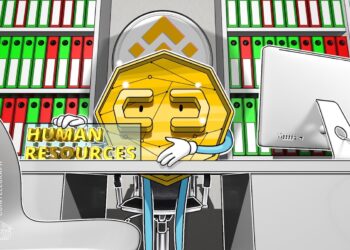Thailand is reportedly planning a nationwide regulatory sandbox permitting international guests to transform crypto into native forex for digital funds in a bid to spice up tourism.
Generally known as TouristDigiPay, the scheme is anticipated to go stay on Monday and permit customers to exchange cryptocurrencies for Thai baht and make digital funds via e-money service suppliers, according to a report on Saturday from native newspaper The Nation.
Solely vacationers in Thailand will likely be eligible to make use of the service after present process Know Your Buyer due diligence checks and opening an account with a digital asset enterprise and an e-money supplier regulated by the Financial institution of Thailand and the nation’s Securities and Change Fee.
There may also be safeguards comparable to month-to-month spending limits and a block on direct money withdrawals. Nevertheless, full particulars on the TouristDigiPay initiative will reportedly be launched on Monday by Deputy Prime Minister and Finance Minister Pichai Chunhavajira.
Officers hope crypto can increase tourism
The TouristDigiPay scheme is an try and breathe new life into Thailand’s tourism trade, and a direct response to the slowdown in international guests, particularly from China, which has lengthy been thought of a cornerstone of the trade, The Nation reported.
Thailand welcomed round 16.8 million vacationers within the first half of 2025, down from 17.7 million the identical time final 12 months, with a 24% drop in vacationers from East Asia and a 34% fall in customer numbers from China, assume tank The World Tourism Institute said in a July 10 report.
The report mentioned vacationers are eyeing different international locations within the area, comparable to Japan with its weaker Japanese yen making it extra inexpensive, and the comparatively cheaper Vietnam.
“Thailand’s 5% tourism decline in 2025 underlines the pressing want for diversification, market repositioning, and enhanced customer experiences to compete in a altering regional panorama,” the report mentioned.
Thailand nonetheless experimenting with crypto
Utilizing crypto to stimulate tourism has been underneath overview by the Thai authorities, with the nation’s SEC finishing a public session on using monetary innovation and digital belongings to help financial and tourism progress on Aug. 13.
Chunhavajira first announced the TouristDigiPay initiative throughout an funding seminar in Bangkok on Might 26.
Associated: Thailand to block Bybit, OKX and other crypto exchanges on June 28
It adopted an announcement in January a few trial to permit international guests to pay for goods and services using cryptocurrencies in Phuket, one among Thailand’s hottest vacationer locations. The trial continues to be within the works.
Nations and companies adopting crypto to draw vacationers
The Kingdom of Bhutan in South Asia has additionally taken steps to integrate crypto payments into its tourism infrastructure, such because the partnership between Binance Pay and local bank DK Bank to let customers pay for his or her bills utilizing crypto.
Jeff Bezos’s Blue Origin inked a take care of Shift4 Payments on Aug. 11, providing clients the choice to pay for outer area journeys in Bitcoin (BTC), Ether (ETH), Solana (SOL) and Stablecoins comparable to USDT (USDT) and USDC (USDC).
In the meantime, in July, the United Arab Emirates signed an settlement with Crypto.com to allow passengers to pay for flights and in-flight purchases utilizing crypto.
Journal: Coinbase calls for ‘full-scale’ alt season, Ether eyes $6K: Hodler’s Digest, Aug. 10 – 16



















